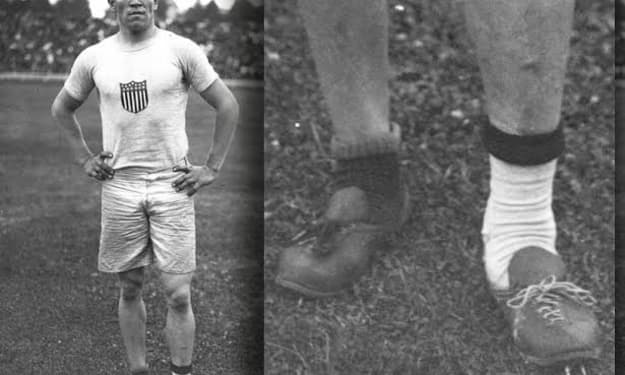How Reframing Our Idea of Failure Helps Us Succeed
Success is a Journey

Every once in a while, I hear some throw-away line that hits me unexpectedly.
Lately, I’ve made it a point to take more creative risks, so I had the concepts of failure and success on my mind anyway, but there’s a scene in Season One of The Good Place where Ted Danson’s character, Michael, refers to Manny Jacinto’s Jason as “a failed DJ,” before Jason stops him.
“I was not a failed DJ,” he says confidently, “I was ‘pre-successful.’”
While obviously played for laughs, this time it hit me differently — I had to wonder how many of our own real-life “failures” are predicated on us simply walking away before we actually give ourselves the chance to succeed? How many of us remain “pre-successful” and afraid to take risks because we assume success and failure to be binaries with absolute, clear-cut boundaries?
What if we have a fundamental misunderstanding of what success and failure actually are?
Failure is Not a State of Being
When I was an undergrad, I was offered a spot in a Creative Writing class which was invite only; you had to have a documented reputation for consistently good writing, and a disposition suited for a workshop-style class — the ability to give and take criticism with good humor and grace.
It was while I was in this class that my professor recommended I submit one of my current pieces to the Ellery Queen literary magazine.
I was ecstatic. I adored this professor — who obviously had confidence in me, inviting me into her class — and I trusted and respected her opinion, so I excitedly submitted my story and waited a painfully anxious three months before receiving a rejection letter.
I’d love to say that I took it in stride — that I lived up to my professor’s image of me, as being able to accept critique with a certain level of grace, that I was resilient and accepted rejection with a certain resignation and dignity.
Instead, it was ages before I submitted anything to a publication again.
Rejection, especially in the early stages of your creative journey, hurts. It feels deeply personal, like an indictment of your worth as an artist and a human being. It feels like a door closing; it feels overwhelming, and it feels, unequivocally, like failure.
But rejection is rarely a door closed and locked behind you; it’s rarely a one-and-done judgment of your inherent worth. As overwhelming as it feels, both rejection and acceptance are a reflection of an in-the-moment need.
My story was not accepted because it did not fit the needs of that publication; my story-telling was not stylistically in line with that magazine; it was not yet well-developed enough; it was too different (or not different enough) from other stories submitted that quarter; or, it just didn’t jive with what the editors knew interested their readership.
It was not that it was a failed piece of writing; it was simply not the right time or place for that piece of writing.
I had not failed at getting published; I had simply not gotten that piece published, yet.
Success is a Process
Too often, we equate trying and not immediately obtaining the desired results with failure, when the truth is, success itself is not an event, but a process.
The first time you hoisted yourself onto a bike and then almost instantly jumped the curb and face-planted was not you failing to ride a bike. The night you left your first French class and went to dinner with friends, and still couldn’t flawlessly pronounce your wine order was not you failing to speak French.
These aren’t failures. They are the natural first steps in the process of trying something new.
If you got back on your bike when you fell off, you would find yourself falling off, over time, less and less. If you went back to that restaurant week after week, you’ll find your drink order rolling off your tongue slightly more fluently each time.
If I’d continued to work on and submit my story, perhaps I’d have gotten it published — or at least gained a better understanding of the art of literary fiction and the publishing world.
So many of the things we are afraid of failing at aren’t things we can really fail at, because they aren’t singular, one-and-done events, they are processes. Embarking on a new endeavor means accepting it may be a while before you’re any measure of good at it — that’s the nature of learning. It’s a continued, sustained effort with gradual (sometimes infinitesimal) positive progress, and no clear ending (ask any “master” of any craft when they felt they’d finally learned everything).
Those times you stumble or fall — that’s how learning is supposed to be. That’s not you failing.
The Benefits of Sticking With It
The longer you stick with these projects — the longer you keep at doing or making or learning the thing you are passionate about becoming good at — the more progress you see. You start to see actual improvement with time, effort, and persistence, and you start to think, “hey, this is actually working, I can actually do this.”
So you start trying more things, taking on more challenges, and now you know that you aren’t going to be great right out the gate. You know this, you accept this. It makes sticking with the thing a little easier (there are always going to be days when you want to give up; that’s not failure either, that’s stress or frustration or burn out, and that’s okay).
Over time, you amass several new skill sets, born of time and effort and energy. And you feel a sense of internal accomplishment — you know how hard you worked, you know how far you’ve come.
So when a task or a challenge presents itself — an opportunity to apply for a gallery art show, a major road race, open submissions for a poetry publication, a class in something you’ve always wanted to learn about, an open call for speakers at a conference — you have an internal sense that what you have to contribute has value.
And if you truly believe that what you do is valuable, then you need other people’s validation of that less and less, and the fear of rejection or “failure” becomes less potent. And then it becomes increasingly easier to take those leaps.
I don’t think I’m at the point where I’m ready to take every risk that comes my way, but I will tell you something — the other day I saw open applications for an artist exhibition, and I went and read through all the criteria and decided, no, I wasn’t ready for this — yet.
There is value and grace in knowing you aren’t ready for something — that’s self-awareness — but knowing that you have the potential to get there someday? That’s self-esteem.
Don’t confuse “pre-success” with failure.
It’s a journey. Just focus on taking steps.
About the Creator
Jess C.
40-something creative -- artist, writer, maker -- parent, and educator. Queer neurodivergent feminist geek. Over-worked, under-slept, over-caffeinated, and over-thinking.
---
Enjoyed the story? Support the Creator.
Subscribe for free to receive all their stories in your feed. You could also pledge your support or give them a one-off tip, letting them know you appreciate their work.






Comments
There are no comments for this story
Be the first to respond and start the conversation.